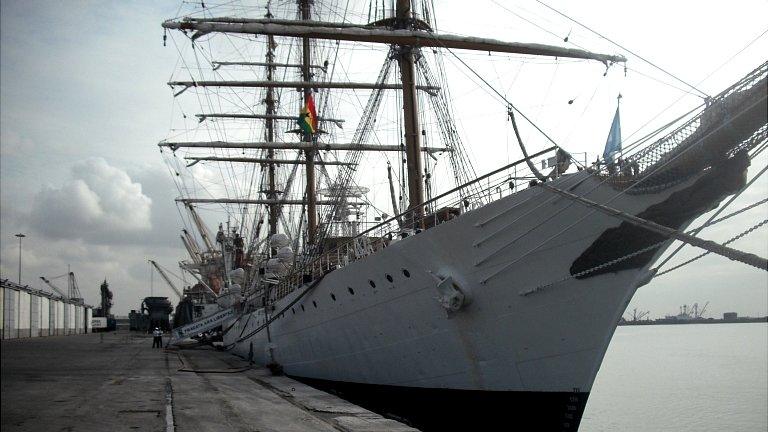Argentina in denial over debt dispute
- Published
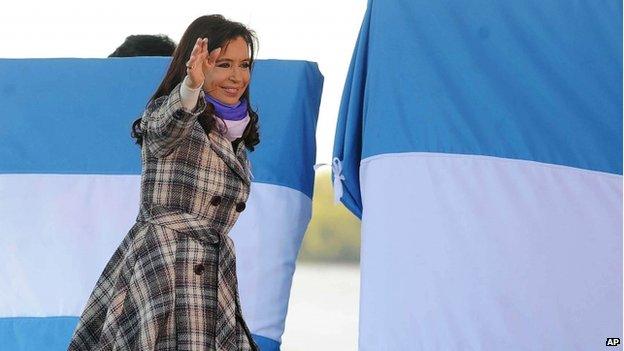
It's not a default, says Argentina's president
Right from the start, the Argentine government's attitude to its debt dispute with US hedge funds made it all but inevitable that the country would fail to reach a compromise.
"We're not going to default, they'll have to invent a new term to define what's happening," said President Cristina Fernandez de Kirchner last week, deep in denial, as the deadline loomed for the country to meet its obligation to the so-called "vulture funds".
Thanks to a US court decision, Argentina is required to pay $1.3bn (£766m) to investors who bought its bonds at a big discount after its economic meltdown and previous default in 2001-02.
It failed to do so by 30 June and a 30-day grace period has now expired.
But the government resisted that course of action, because it feared that it could lead to the unravelling of other debt deals that it struck with most of its creditors.
As a result, a second default has now occurred, and the outcome could be painful for an economy that is already in recession.
Distressed debt
Last time around, Argentina was left unable to repay or service more than $100bn of debt. The resulting default meant that it has not been able to borrow further money on the international markets since then.
Two successive restructuring deals, in 2005 and 2010, covered the overwhelming majority of bondholders, who agreed to accept about one-third of what they were originally owed.
However, hedge funds NML and Aurelius Capital Management snapped up a large chunk of the remaining distressed debt at low prices and are now pressing to be paid the full face value of their holding.
Their case against the Argentine government has been trundling through the US judicial system for some time. But Buenos Aires didn't expect the crunch to come so soon.
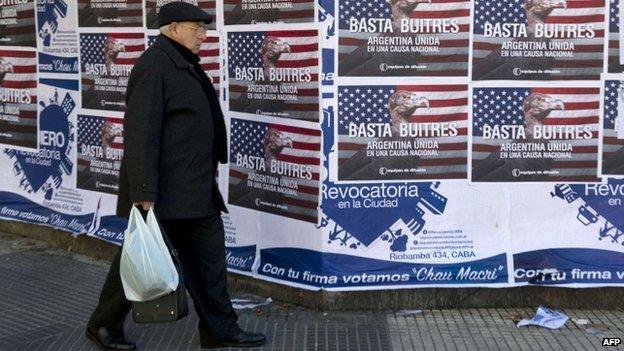
Enough vultures, say the posters in Buenos Aires
President Fernandez's government fully expected the dispute to go all the way to the US Supreme Court, which would have bought the country more time.
But in June, the Supreme Court declined to hear Argentina's appeal against the decision of a lower court that made it liable for the money.
Under that court's ruling, Argentina cannot use the US financial system to keep paying the restructured bondholders unless it also pays the "vulture funds".
And there are other hold-outs from the previous restructuring deals who could now follow the hedge funds' example and press for the full face value of their bonds.
Wider economy
From Argentina's point of view, there is a legal obstacle to its acceptance of the hedge funds' terms: a clause in the deals with the restructured bondholders, known as Rufo (rights on future offers).
This clause, which expires at the end of the year, states that Buenos Aires cannot favour the hold-outs over those who accepted the restructuring deals.
Given the choice, Argentina would have liked to spin out the negotiations with the "vulture funds" until 2015, when the clause will no longer apply.
But the US courts refused to comply, seeing the restriction as one of Argentina's own making that could be circumnavigated if the government wanted to.
And after all, why should the Argentine government put itself out? As Capital Economics emerging markets economist David Rees points out, the default will have a "negligible" direct impact on it.
"The authorities are already locked out of international markets and will remain so," he says.
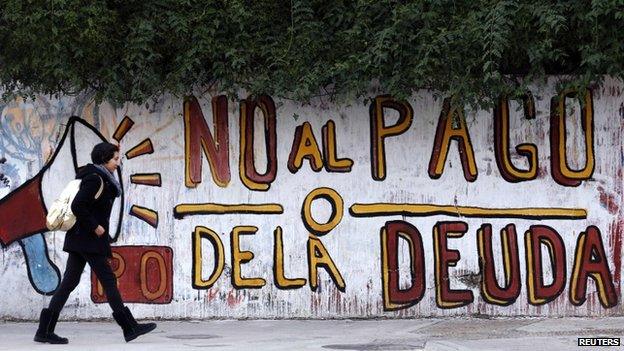
No to the debt payment: the writing on the wall in Argentina
"But default is likely to have negative consequences for the wider economy in two ways," he adds.
"First, it is likely to cause interest rates on corporate debt to increase, which may deter investment and hamper activity in the private sector.
"Second, default may spur some capital outflows, exacerbating a shortage of hard currency and putting renewed pressure on foreign exchange reserves and the peso."
Combative style
That hard currency shortage is reaching a critical point. The amount of foreign exchange held by the central bank fell by 30% last year and is now less than $30bn (£18bn) - the lowest level since 2006.
As well as allowing Argentina to service its debts, that money is also needed to finance imports. Capital outflows would also do further harm to an economy that is expected to contract by 1% this year.
Undeterred by all this, President Fernandez is ploughing on in her usual combative style, while seeking help from other quarters.
Earlier this month, she wangled an invitation to the Brics summit in the Brazilian city of Fortaleza as a special guest, alongside the leaders of member countries Brazil, Russia, India, China and South Africa.
While there, she obtained support from the group in her battle against the "vulture funds".
She also came away with assurances that the organisation's new Development Bank could well offer her an economic lifeline.
But Argentina's woes are testing her leadership style to the limit, while economic and political analysts are already hoping that the end of her mandate in October 2015 will usher in an era of renewal after the next presidential election.
- Published23 July 2014
- Published27 June 2014
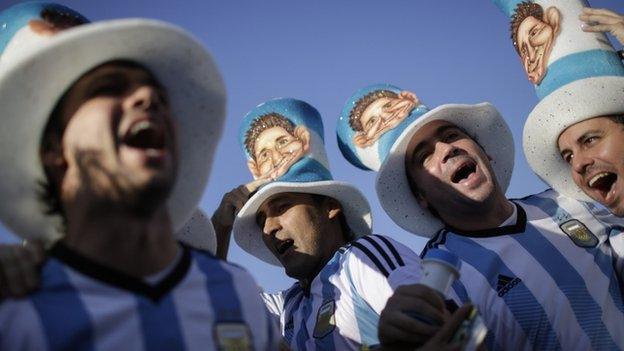
- Published22 June 2014
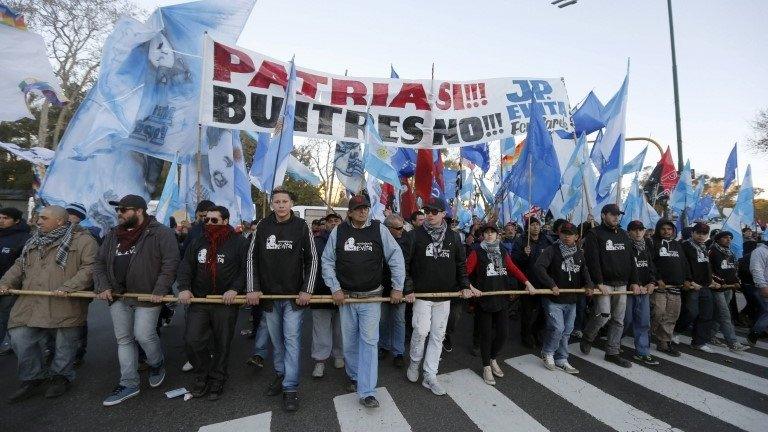
- Published20 June 2014
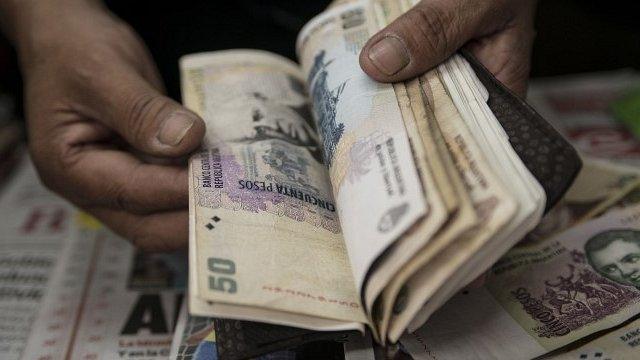
- Published19 June 2014

- Published17 June 2014

- Published25 August 2013
